Did you know that solar energy is not just a trend but a revolution in Egypt? Yes, reports reveal that solar systems might soon power more Egyptian homes than ever imagined.
The urgency is real as Egypt faces mounting climate changes, economic challenges, and a growing population demand for sustainable energy solutions. So why is now the tipping point?
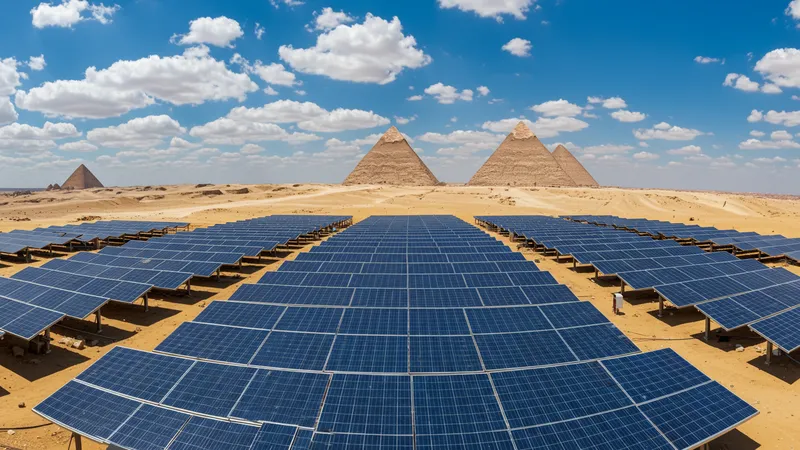
While the abundance of sunshine makes Egypt a solar energy powerhouse, the real story is in its potential to reshape daily life. Imagine a Cairo home entirely off the grid, effortlessly transitioning from dependency to self-sufficiency. But that’s not even the wildest part…
Harnessing solar power goes beyond reducing electricity bills. It's reshaping entire communities with shared solar gardens and local energy trading, empowering Egyptian citizens like never before. But there’s a revolutionary undercurrent society hasn’t tapped into yet…
What happens next shocked even the experts: a wave of policy changes, community initiatives, and international cooperation is on the horizon. And this ripple might just redefine energy independence for millions. Curious to know more?
Solar energy is more than just an eco-friendly alternative; it's abundant in Egypt, which receives some of the highest solar radiation levels in the world. What remains underutilized, however, is community engagement in solar projects. Many local groups are now discovering that collectively investing in solar can lower costs and expand its reach much further than individual efforts.
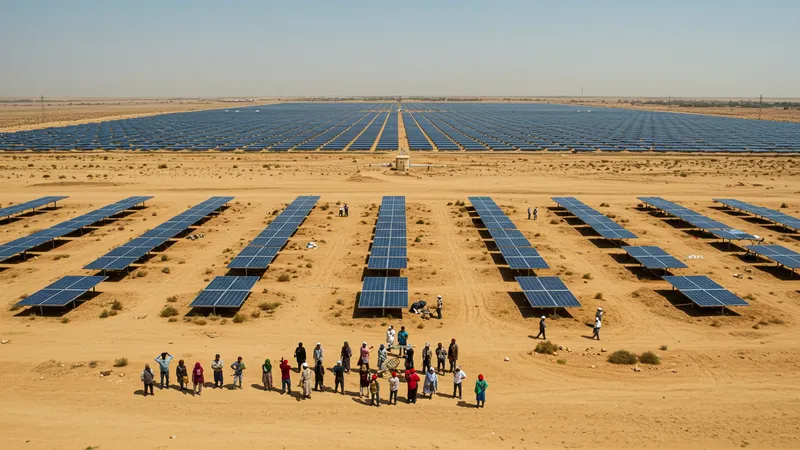
Yet, most Egyptians are unaware of their government's commitment to increasing solar capacity, with projects like the Benban Solar Park, expected to be one of the largest in the world. These initiatives aim to tap into the vast, underutilized expanses of the Egyptian desert for solar farms, providing an unexpectedly large contribution to the nation's grid.
But here’s a shocking truth: many residential areas are still lagging behind in access to affordable solar power. While urban initiatives receive significant attention, rural regions, which stand to benefit enormously, are often left in the shadow. What you read next might change how you see this forever.
There’s a grassroots movement among local enterprises, pushing solar energy education and affordable solutions into neglected areas. These efforts, combined with innovations, suggest the potential to close the urban-rural technology gap. But there’s one more twist to this unfolding story…
You might think converting to solar energy is an expensive venture. However, early adopters in Egypt are finding that initial costs often pay for themselves much sooner than expected. With government subsidies and international investments, the economic barriers are being chipped away faster than anyone predicted.
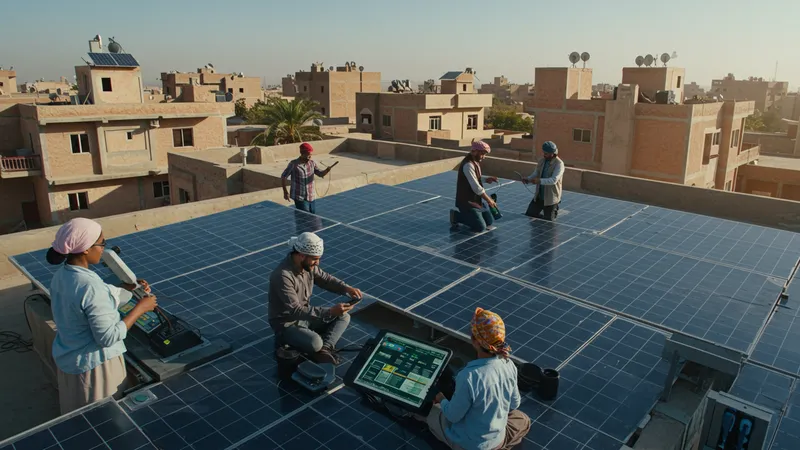
A notable point is that solar systems not only cut down electricity bills—they may even provide an additional income stream. With net metering systems, Egyptian households can sell surplus energy back to the grid. This income potential is urging more people to explore solar, promising a more sustainable future.
Unexpectedly, solar initiatives are boosting local economies. From creating jobs in manufacturing, installation, and maintenance, to driving investments in peripheral businesses, the benefits ripple outwards. The result? A thriving solar ecosystem poised to explode.
For skeptics who still wonder if solar is a worthwhile investment, consider this: integrations with smart homes and IoT devices are increasing efficiency dramatically, reducing waste, and further lowering costs. But there's more on the horizon that no one saw coming…
Egypt is not just adopting solar energy; it's innovating within the sector. From local startups developing advanced energy storage solutions to new hybrid technologies blending solar cells with traditional resources, innovation is at the heart of the solar surge.
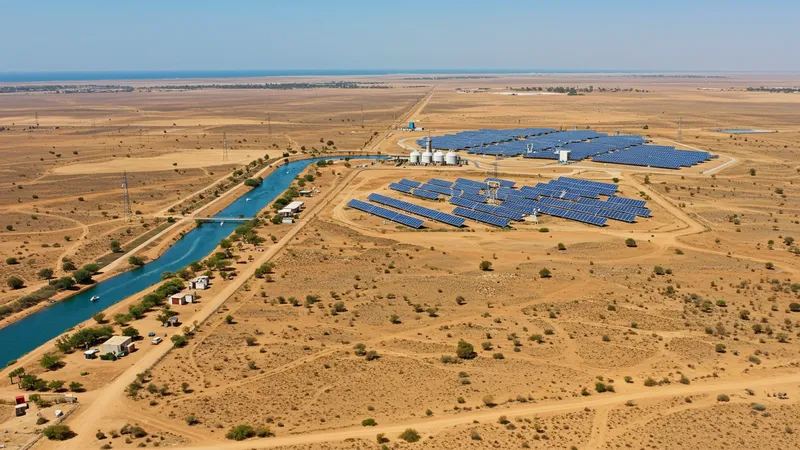
One surprise development is the rise of solar water desalination plants, which could solve freshwater scarcity—a persistent issue for Egypt's growing population. These plants leverage solar power to purify seawater, turning an infinite resource into a sustainable one.
Naval initiatives are turning to solar-based logistics, hinting at a renewable future for transportation. Major shipping routes along the Red Sea are testing solar-powered vessels, aiming to reduce the heavy carbon footprint of maritime trade.
But that's just the start; solar technology in Egypt is on the cusp of a transformation that may redefine its global energy role. What lies ahead in terms of policy and technological breakthroughs could very well surprise even the most hopeful optimists.
Recent legislative changes are catapulting Egypt's solar industry into a new era. With the government taking a proactive stance, they’re deregulating energy markets to encourage private investments in solar projects. These policies are designed to attract more international investors and incentivize local businesses that invest in solar technologies.
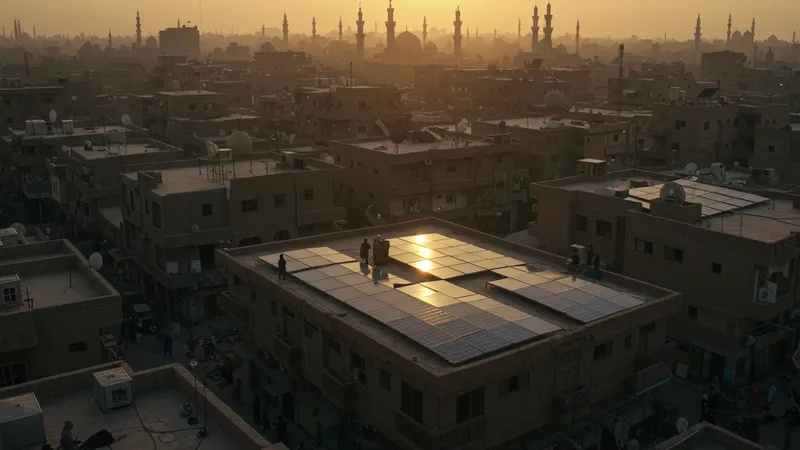
Intriguingly, this shift is not just about expansive solar farms; it's intended to empower individuals. Simplified permit processes for small-scale solar projects allow more Egyptians to contribute to and benefit from renewable energy. Imagine a bustling neighborhood of Cairo where rooftops gleam with solar panels, each household its own mini-power plant.
Yet there are hurdles. Some entrenched players in traditional energy sectors are resisting these changes, fearing loss of market share. Private investors cautiously optimistic, await further regulatory clarity to commit fully. A wave of investments hinges on these developments.
Amidst all this, a silent revolution is brewing: alternate energy startups are cropping up, ready to seize these new opportunities. Their strategies could shape Egypt’s energy future dramatically. Prepare to be astonished as this unfolds…
Community solar gardens are sprouting across Egypt, introducing an innovative way for communities to collectively harness solar power without the need for individual installations. These shared solar arrays allow residents to benefit from solar energy financially and sustainably.
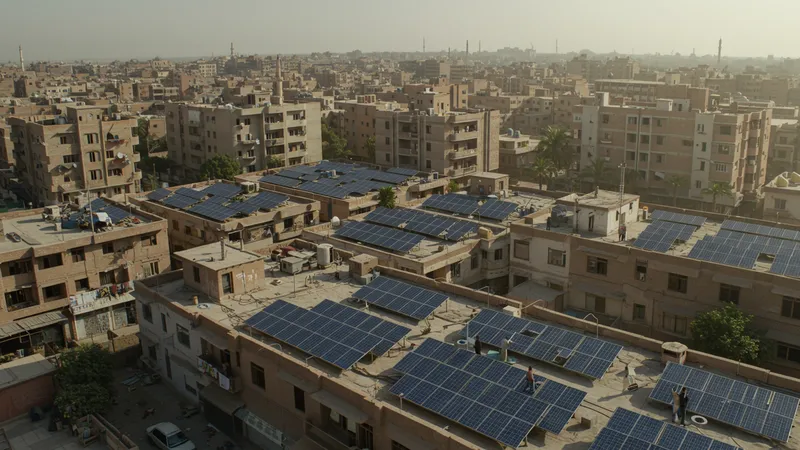
This model is particularly advantageous in urban environments where space is at a premium. By utilizing rooftops of commercial buildings or apartment complexes, it maximizes available space and democratizes energy access.
One of the more interesting aspects is that these gardens are promoting a sense of community ownership. Members can purchase shares in the solar garden, allowing them to directly benefit from energy savings and production. This communal approach is driving a wave of social cohesion and empowerment.
But here’s where the story gets even more compelling: these community initiatives are facilitating educational programs, fostering renewable energy knowledge, and engagement among participants, which could lay the groundwork for a broader cultural shift towards sustainability. And that’s just the beginning…
International partnerships are playing a vital role in Egypt’s solar evolution. European nations, China, and the United States are collaborating with Egyptian entities to bring cutting-edge solar technologies to the country. These alliances provide not only funding but also technical expertise and research advancements.
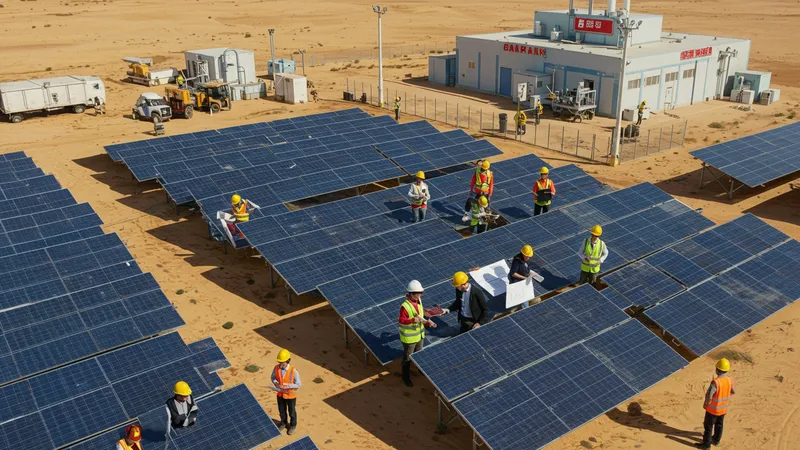
Germany, a leader in renewable energy, is sharing its solar tech know-how through joint workshops and training sessions. Chinese companies are investing in manufacturing facilities within Egypt, making solar components locally and boosting the economy.
A surprising development is the involvement of multinational corporations creating renewable energy funds. These investments are not without strings, but they promise large-scale developments that could propel Egypt to a global leader in solar energy.
The true potential of these collaborations lies in their ability to shape policy and infrastructure, bringing Egypt closer to energy independence. The geopolitical and economic impacts of these partnerships might usher in a new era for the region. And there's more than meets the eye…
Solar energy isn’t only about reducing reliance on fossil fuels; its environmental impact in Egypt is expansive. Beyond CO2 reductions, there’s a significant decrease in air pollution, which has been a persistent issue in major cities like Cairo and Alexandria.
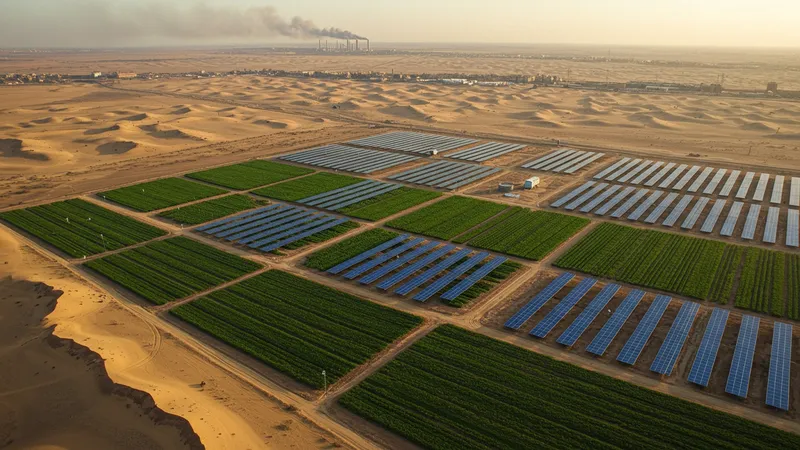
Restorative projects that utilize solar energy to replenish and maintain ecosystems are gaining traction. Solar-powered irrigation systems now support agricultural sectors, improving crop yields and turning previously barren land green.
Water management innovations—like solar thermal-driven desalination—are helping manage resources efficiently, crucial for Egypt's arid climate. These systems promise a future where water scarcity might no longer be a constraint.
But the broader ecological benefits are still being discovered. As biodiversity flourishes in areas supported by solar projects, the interconnectedness of this renewable energy source and the environment becomes clearer. This dynamic relationship could alter conservation practices across Egypt, with unforeseen advantages waiting to emerge…
Smart technology is propelling solar energy to new heights in Egypt. With the integration of IoT devices and real-time data analytics, solar technology is becoming increasingly efficient and user-friendly, optimizing energy consumption and output.
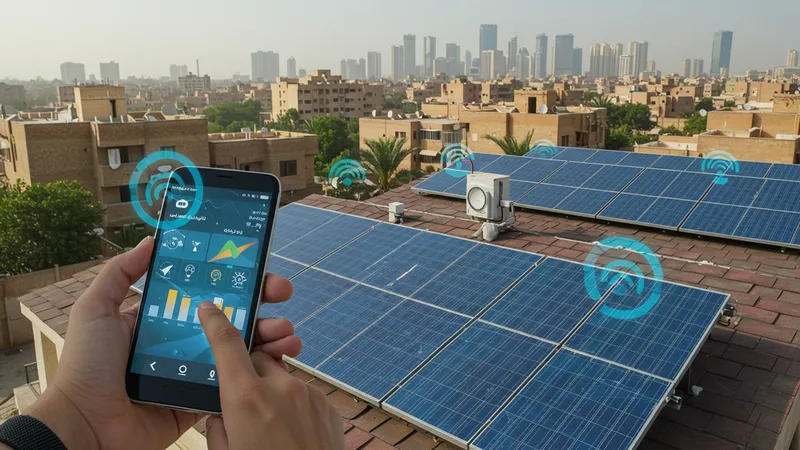
Egyptian tech companies are innovating rapidly, developing apps that allow homeowners to monitor energy usage, predict maintenance needs, and automate energy-saving practices. These innovations transform solar panels from static installations into dynamic, interactive systems.
Predictive analytics in solar systems are improving operational efficiencies, forecasting weather conditions, and managing energy distribution dynamically across the grid. These advances allow for optimal energy utilization, significantly enhancing grid stability and performance.
As these smart technologies advance, they position Egypt as a leader in solar tech innovation. The implications for energy efficiency, cost savings, and environmental impact are tremendous, hinting at revolutions in how energy is produced, consumed, and viewed. And just when you think it couldn’t get better…
The youth of Egypt is stepping into the solar sector with vigor and vision. Young innovators and entrepreneurs are driving a movement that sees renewable energy as both a career path and a mechanism for social change.
Entrepreneurship in solar energy is thriving, with incubators and accelerators supporting startups dedicated to tackling Egypt's energy challenges. These initiatives are empowering a new generation of leaders who are passionate about sustainability and innovation.
Youth-led initiatives focus on integrating solar energy into daily life, from designing affordable home systems to developing educational programs that teach solar technology in schools. This movement is fostering a culture of environmental responsibility and self-sufficiency.
By using platforms like social media, they’re raising awareness about the benefits of solar energy, mobilizing communities and influencing public opinion. This grassroots activism is pivotal in reshaping the country’s energy future and inspiring hope. But the full impact of their drive is just beginning to unfold…
In a surprising turn, Egypt's tourism industry is a growing advocate for solar energy. Hotels and resorts in the Sinai Peninsula and Red Sea areas are investing in solar to both reduce operational costs and appeal to environmentally-conscious travelers.
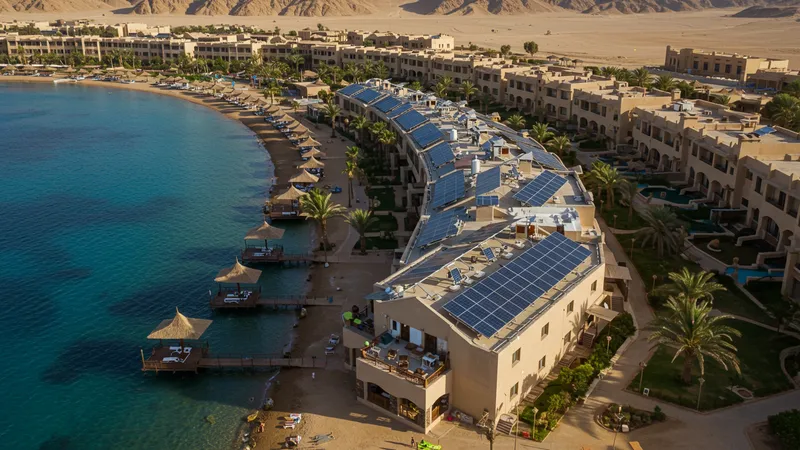
The push for solar-powered accommodations reflects a shift towards sustainable tourism, which aims to balance economic growth with ecological preservation. This aligns with global travel trends where travelers prioritize eco-friendly practices.
With world-renowned sites at stake, preserving Egypt's natural and archaeological heritage through sustainable practices is becoming a priority. Incorporating solar technology into these efforts is seen not just as environmentally responsible but economically strategic.
This alignment of interests highlights solar energy’s versatility and broad appeal. As tourists increasingly seek out carbon-neutral experiences, the solar-powered initiatives within tourism might set precedents that influence broader travel behavior and expectations worldwide.
Solar energy is subtly altering cultural perceptions within Egypt. As households adopt solar solutions, the cultural discourse around energy is shifting from consumption to conservation and innovation.
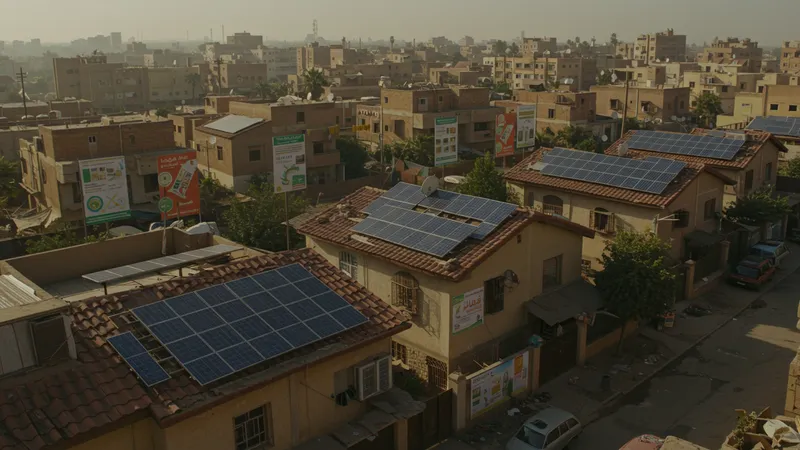
This shift is becoming evident in media and educational curriculums, with narratives subtly moving from dependence on traditional energy sources to excitement about renewable possibilities. Solar energy is slowly being woven into the identity of modern Egypt.
Younger generations are viewing solar not just as a utility but as symbolizing progress, independence, and connectivity with global sustainability efforts. This cultural reformation is fostering a national sense of pride and possibility.
The widespread adoption of solar is challenging traditional energy narratives and inviting discussions about the future Egypt envisions for its people. As solar power lights up more homes, the conversation continues to evolve, forging a new path for energy discourse in the region.
Looking into the future, the possibilities for solar energy in Egypt are expansive. With continued technological advancements and strategic collaborations, solar power could not only meet domestic energy demands but position Egypt as an energy exporter in Africa and beyond.
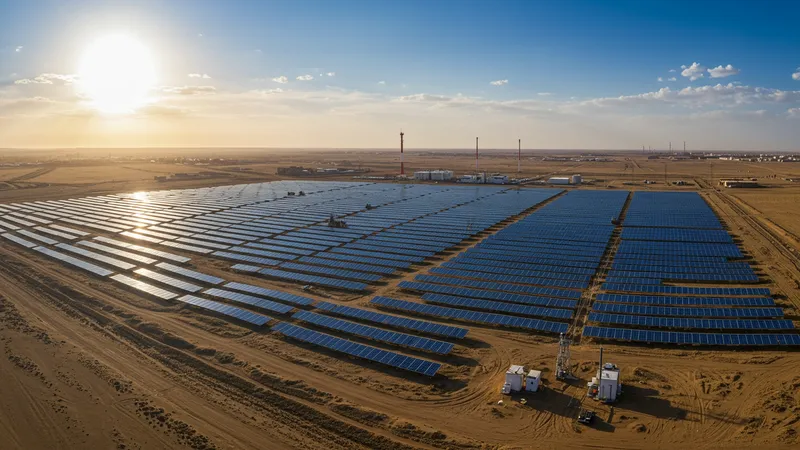
The government’s vision includes expanding solar infrastructure to secure Egypt’s place as a regional energy leader, fostering economic growth and innovation. Long-term plans aim to create a robust renewable energy market that withstands external shocks and fluctuating oil prices.
In rural areas, solar energy promises to improve the quality of life by providing reliable electricity access, driving educational opportunities and health benefits. As energy becomes more equitable, economic and social inequalities might diminish.
Overall, the solar energy journey in Egypt is just beginning. Its transformations could lead to an era defined by sustainable development and a new model for energy independence. As the nation strides forward, solar energy embodies the promise of light over darkness, innovation over stagnation.
The potential of solar energy in Egypt is more than just power; it's a narrative reshaping the country's future, promising transformation beyond expectations. As these technological, economic, and cultural shifts unfold, they beckon us to participate, share this vision, and contribute to a brighter future. The call to action is clear: engage, innovate, and pioneer a sustainable tomorrow by saying yes to solar energy today.